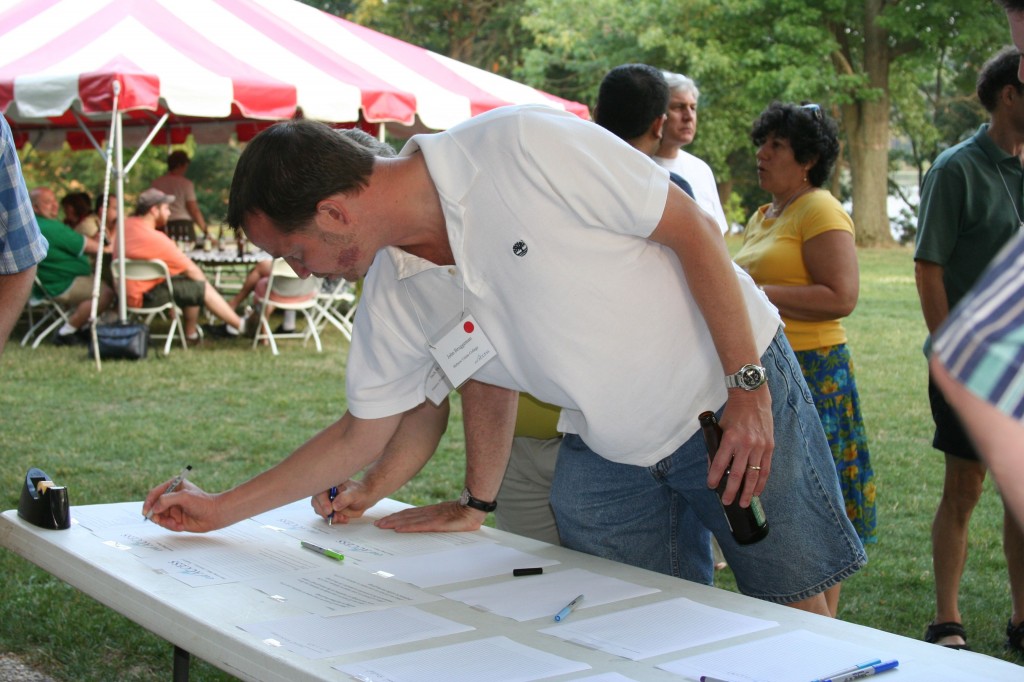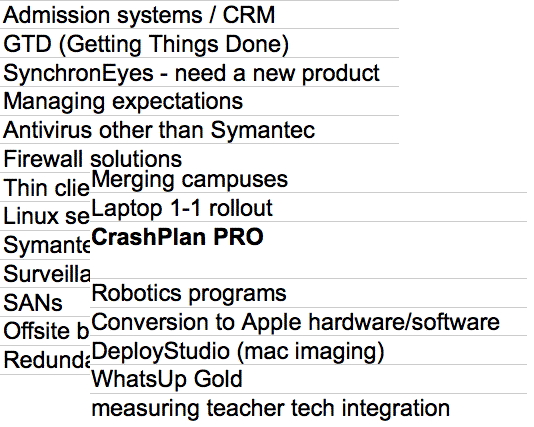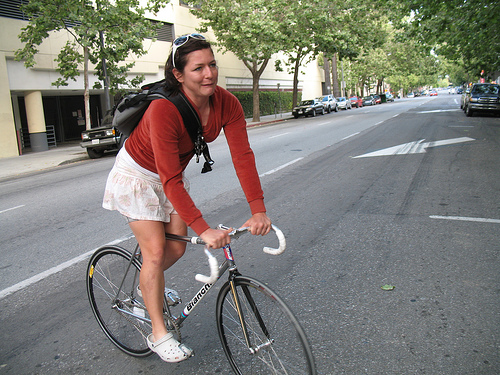Three perspectives on crowdsourcing events

Are We Thinking What I’m Thinking?
The longest and most detailed article is Are We Thinking What I’m Thinking? by Barbara Palmer. It appears in the September issue of PCMA Convene magazine. I, of course, love this article because I feature extensively in it. (And, all the photos are mine!) Massive kudos to Barbara for quoting me accurately and clearly conveying my crowdsourcing philosophy, perhaps the most radical approach described, that of using crowdsourcing to determine sessions at the event.
Barbara also interviewed Sam Smith, who, together with Ray Hansen, organized last week’s Event Camp Twin Cities (at which I ran a couple of sessions). ECTC used crowdsourcing very successfully at the session design level by reaching out to the #eventprofs community, asking for suggestions for novel session formats and content, and then creating a conference program that incorporated many cutting-edge ideas. One of the refreshing strengths of Event Camp Twin Cities was its overt philosophy. “We are trying new stuff here, and probably some of it won’t work.” The result was a truly innovative conference, full of enlightening experiments (with very few failures, as it turned out).
The 2011 GMIC conference
Next, Barbara asked Elizabeth Henderson about her ongoing work on the design of the 2011 Green Meeting Industry Council Sustainable Meetings Conference. Elizabeth is concentrating on creating crowdsourced event design teams with members drawn from a variety of backgrounds and viewpoints. This is another way to use crowdsourcing at the pre-event level that helps to avoid a groupthink mentality.
What meeting professionals think
Finally, Barbara quotes various meeting professionals’ views on crowdsourcing, around the theme of the role of the expert compared to the role of the crowd. In this section, the viewpoints expressed downplay the value of the crowd’s input. This is the crowdsourcing as a minor fad point of view. The possibility of influencing session topics and content is mentioned. But the description of crowdsourcing’s value for “entry and exit music, entertainment options, ways to green an event, reception themes, and party-venue options” implies relegating its importance to the relatively superficial.
And the final two comments—”I suggest that event professionals crowdsource topics, content ideas, and suggestions – and steer clear of crowdsourcing speakers and actual sessions” and “Crowds can tell you what they want…But an expert can say, ‘You are going to need to know this'”—revert to the old worldview of novice attendees being guided by wise non-attendee experts. Such a worldview ignores the reality that conference audiences invariably contain a healthy mixture of novices and veterans.
The Good and the Evil of Crowdsourcing Conference Content
The second article is Michelle Bruno’s The Good and the Evil of Crowdsourcing Conference Content from the Trade Show News Network. Michelle starts by saying “Event organizations that crowdsource conference content are learning there is a right way and a wrong way to solicit community feedback.” This formulation is unfortunate for two reasons. First, as we’ve seen above, there are a number of ways to approach crowdsourcing an event, and it’s simplistic to say that any of them are right or wrong. Second, the article offers no evidence that any particular approach is better or worse, except for the gut instincts or opinions of the people Michelle quotes.
The 2010 PCMA Education Conference
First, Michelle describes Mike McCurry’s work on developing peer networking sessions for the 2010 PCMA Education Conference held in June. Since the event is over, it’s a shame that there are no follow-up comments as to the effectiveness of Mike’s pre-event crowdsourced topic selection. Perhaps this information exists but is unpublished.
South By Southwest
Next up is South By Southwest’s crowdsourcing of 30% of their conference sessions. I tend to agree with Jeff Hurt (quoted in the Convene article) that for a conference of this size, the process SXSW uses becomes a popularity contest rather than participatory crowdsourcing. This is because there’s no significant pre-selection communication between attendees and/or the folks offering the sessions. So we end up with what is basically online voting on thousands of suggestions.
NTEN
According to Michelle’s article, the same kind of process is used by the Nonprofit Technology Network, which points out that it takes about 90 minutes to vote on every one of the 400+ sessions suggested for their 2011 conference. It’s unreasonable to expect more than a small fraction of attendees to expend this kind of effort, so the question then arises: How representative of all attendees are the responses NTEN gets?
The article continues with comments by Chris Bucchere about using (what he calls) crowdsourcing in a very different way from the above examples. He says “Using your community to ‘spec’ work for you is an ‘evil’ way to crowdsource.” This declaration ignores the common thread in all the above uses of the term: namely that crowdsourcing is also a win for participants because they get the sessions & formats they want. Chris’s idea of using crowdsourcing seems to be about building community/brands via contests with incentives for the winners. Perhaps this is an effective strategy for “anyone who wants to leverage the power of the social web to build a brand”, but it’s hardly new; advertising contests go back to at least the 1920s (e.g. Ivory Soap) and it’s a stretch to relabel them crowdsourcing, even if we’re using a social media platform for them now.
In closing
In closing, Michelle says “On the other hand, there is such a thing as giving the community so much power that they begin to make specific demands that may or may not be in keeping with the goals of the conference or the organization.” This brings up the issue of control at events, something that I’ve written about before. In 20 years of using crowdsourcing at events, I’ve never experienced an instance where a majority of participants made unreasonable demands. On the contrary, on every occasion when something unexpected (to me) has emerged from good group process, it’s turned out to be an accurate and useful way to improve the conference.
How web video powers global communication
The final article isn’t, in fact, an article, it’s a just-released video of a 19-minute TED talk by Chris Anderson entitled How web video powers global communication. In it, Chris describes what he terms Crowd Accelerated Innovation: “a self-fueling cycle of learning that could be as significant as the invention of print”. Chris argues that the rapidly increasing availability of web video is drastically speeding up the ability of people all over the world to focus on and improve the best-of-breed sharing they discover on their screens.
In a sense, web video becomes a tool for effectively crowdsourcing experience and experiments. Chris believes that this new medium has the potential to revolutionize learning and the development of new ideas and their implementation. But he cautions “…to tap into its power, organizations will need to embrace radical openness.” I think there’s a certain degree of hype in his presentation, but it’s well worth watching.
So, there you have a variety of ways in which crowdsourcing is entering and affecting the world of events. Which ways, if any, speak to you?



